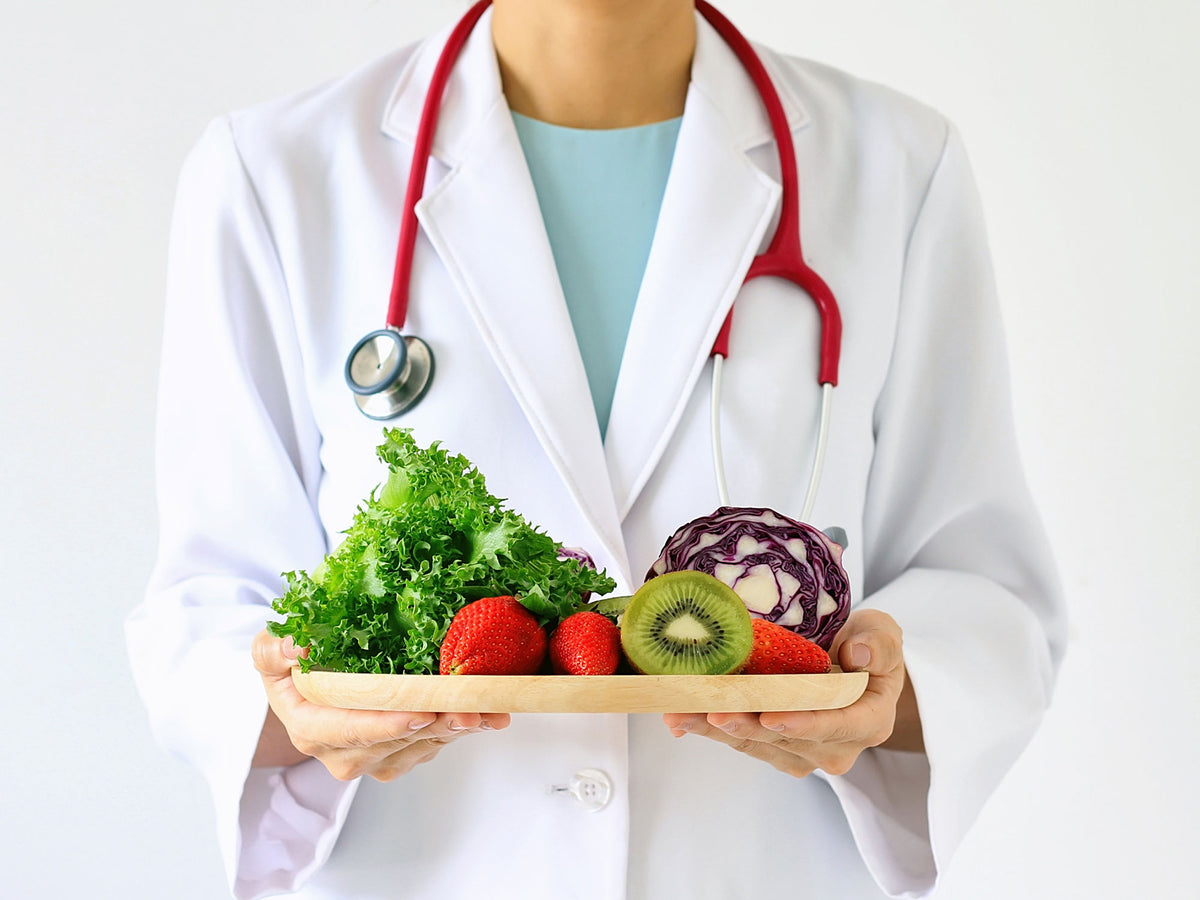
What if the food you ate had the power to heal you? The foods you consume play a significant impact on your recovery process.
Post-surgery nutrition is a key component to achieving a full recovery and overall wellbeing. The correct foods provide nutrients that your body needs to rebuild tissue and heal properly.
In this article, we will cover 8 tips to help you figure out what to eat after surgery.
Before you are unable to go grocery shopping for several weeks, make sure you stock up your kitchen with healthy foods.
The last thing you need after surgery is to either run out of food or feed your body with unhealthy foods. Eating nutritious food will not only help your body heal but will also give you energy.
These types of food provide the body with the essential vitamins and minerals needed for its recovery. If you find yourself unable to buy your groceries, there are grocery delivery services available and possibly close relatives or friends that are willing to help you.
Fruits and vegetables are packed with vitamin B and antioxidants that support the body’s immune system. Berries contain high amounts of antioxidants like vitamin C which helps the body repair damage.
Research shows that vitamin C helps rebuild collagen and soft tissue, meaning your incision site will heal quicker. When your body is recovering, it needs healthy connective tissue and collagen is what those ligaments and tendons are made of.
Citrus fruits, vegetables, berries, and potatoes can help ensure you get enough vitamin C. It is recommended to eat at least 3 servings of vegetables and fruits daily.
Whole grains are unrefined grains that retain all of their seed parts (bran, germ, and endosperm). This form of grain provides more fiber and nutrients, such as B vitamins, iron, folate, selenium, potassium, and magnesium; which are all essential to strengthening the immune system and aiding the body’s natural healing process.
Consuming whole grains after surgery provides the body with carbohydrates. These carbs provide energy and prevent muscles from breaking down.
Whole grains are also digested more slowly than refined grains, which help with blood sugar and insulin.
Protein contains amino acids that are essential during the healing process. In fact, they help with wound healing and tissue regeneration.
Incorporating more proteins into your diet will help rebuild your bones, muscles, and damaged tissues, while also helping your immune system fight off infections.
Healthy fats and oils such as olive oil, coconut oil, nuts, and seeds are essential during your recovery. Choosing healthier fats will help strengthen your immune system and decrease your risk of infection.
They simply provide the body with the energy and nutrition it needs to accelerate healing, increase strength, and fight off infections.
During your recovery, you should be eating at least 3 well-balanced meals daily. In the morning for breakfast, you should be eating protein, whole grains, a serving of dairy and fruit. Lunch and dinner should include a serving of protein, whole grains, vegetables, and fruit.
Also, in between your meals, you can eat healthy snacks like fruit, nuts, and vegetables. The best thing is you can have as many fruits and vegetables as you want since these are essential to your recovery.
Processed foods should be avoided during your recovery stage since they tend to be high in sodium, preservatives, fat, and sugar.
These food options do not provide any nutrients that help the body heal after surgery. Avoiding fried foods that contain fewer nutrients and fiber will also help your digestive system.
Consuming unhealthy foods that do not provide any nutrition can greatly impact your overall health and affect your immune system. It is best to not include these food options in your post-surgery nutrition.
The most essential thing we need after surgery is usually neglected by most people, which is water. Water allows the body to stay hydrated while removing toxic waste products within our system. It also makes minerals and nutrients more accessible to the body.
All in all, water is needed to assist the body during its recovery process.
The body is made up of 55 to 65 percent water. However, dehydration is common in adults, and maintaining proper hydration levels is crucial.
According to the U.S. National Academies of Sciences, Engineering, and Medicine; men should consume 15.5 cups of water daily while women should consume 11.5 cups of water daily to maintain proper hydration.
Not many people enjoy the taste of water, but there are ways to make water more appealing. Try adding fruits to your water, drinking coconut water or herbal teas, and eating more high water content foods to help you consume more water.
A successful recovery is directly related to well balanced post-surgery nutrition. It is very important to consume lots of fruits, vegetables, whole grains, and proteins during your recovery.
These foods provide the body with essential vitamins, minerals, and protein. A single nutrient deficiency can affect the immune system’s ability to heal and fight off diseases.
We also recommend that you incorporate supplements that can accelerate tissue healing, such as WoundVite. To create an eating plan that meets your specific needs you may want to consult with your doctor or nutritionist.